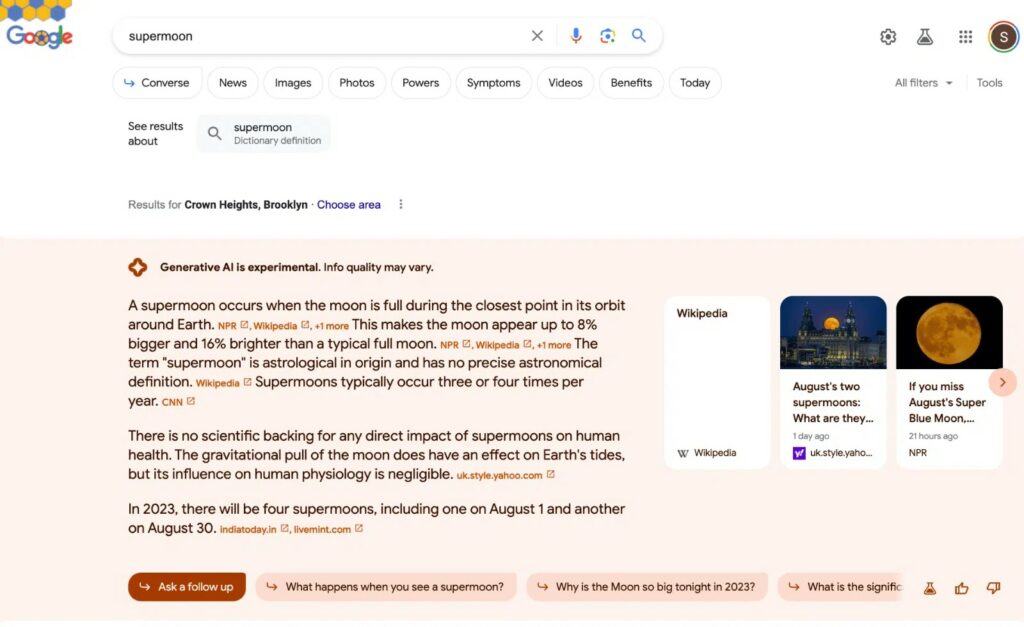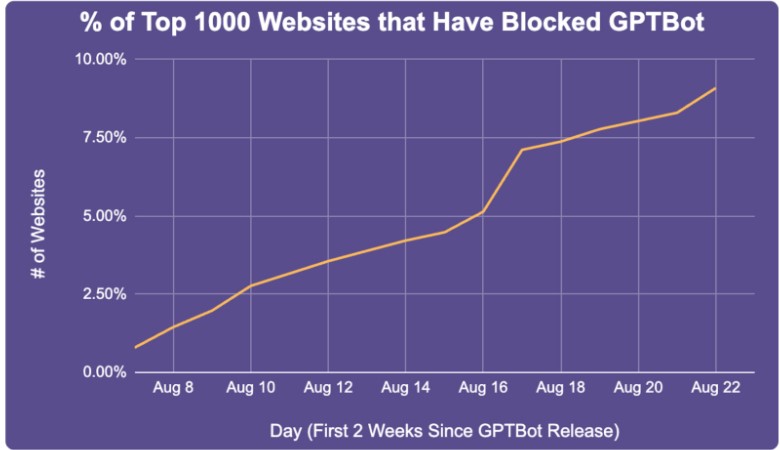“What’s happening in the ever-changing world of SEO?” – lots as you would expect. With changes to Google search results pending, there appear to be changes every week at present! So what is happening/has happened in the ever-changing world of SEO in August and September 2023? In this article, we’ll outline the latest improvements, algorithm updates, and industry insights that are shaping the present and future of SEO and more importantly – impacting your site and business.
A broad core Google Algorithm update on August 23
Google announced that they were rolling out a broad core algorithm update late in August, with the update expected to take two weeks to roll out. This means the effects of the algorithm update are likely to be concluded at this point.
A broad core algorithm update is a significant change made by a search engine, typically Google, to its core search algorithm – there are only a handful of these a year. These updates are designed to improve the quality and relevance of search results for users. They can have a significant impact on the ranking of websites in search engine results pages (SERPs) and can lead to noticeable fluctuations in website traffic and rankings for many websites.
What does this mean for your business?
It’s likely that if you’ve been working on your SEO, your site may have seen a boost in rankings. If you’ve been negatively impacted by this algorithm update, remember that:
A positive move towards attribution for SGE
Over the last few months, we’ve been keeping a close eye on Google’s planned SGE changes and what this may mean for your website. You can read more on SGE here.
Google announced a new design for AI-generated search results early in August and SEO’s celebrated a small victory as this update would look to soothe tensions on an ongoing copyright debate in the community.
In some screenshots, we can see that Google made reference to websites in which the information may or may not have been crawled from:

There are a number of variations of this link attribution and it appears that Google is taking this Copyright issue seriously, crediting sites that are contributing to the ecosystem of the web.
What does this mean for your business?
Previous versions of SGE did not include attribution, meaning site owners and businesses could lose out on valuable clicks to content. This change means that the expected click-through rate drops off from Search Engines to your website and will likely be lessened, giving content creators an incentive to continue to create great, expert content. This also presents an opportunity to achieve ‘ranking positions’ in AI answers, meaning the impact of SEO is still just as important post-launch as it is today.
Google still appears to be testing different approaches to attribution, so ‘watch this space.’
Major sites blocking AI Chatbots
Site owners now have the ability to block AI bots from crawling their content. Web crawlers crawl web pages and extract information to contribute to the training of AI products such as Chat GPT or Google Bard.
It’s no secret that website owners are growing more apprehensive about the repercussions of these crawlers on their content and are seeking ways to safeguard their intellectual assets.
Prominent websites, such as Amazon, Quora, The New York Times, CNN, ABC, Reuters, and numerous others, have implemented restrictions to prevent AI crawlers from accessing their content.
As per findings from Originality.AI, an AI detection tool, nearly one-fifth (approximately 20%) of the world’s top 1000 websites restrict crawler bots from gathering web data for AI applications.

What does this mean for your business?
The content and assets on your website (text and images) are available on the internet but could be subject to Copyright law. Crawlers do not request permission or pay for a license to extract data and information and the prevalence of new AI tools has led to a heated debate about the ownership of content.
The ability to block AI bots, allows webmasters to take the protection of content and intellectual property into their own hands and safeguard their content from being reproduced.
However, it’s not clear whether this will impact the ability of the content to rank in search engines – which could put those who block AI bots from crawling their content at a disadvantage.
Google rolls out yet another helpful content update
The most recent update to this system prior to this one was in December 2022. This latest update began on September 14 and is expected to be fully implemented over approximately a two-week period.
Google has stated, “The September 2023 helpful content update is now being deployed, featuring an enhanced classifier. This deployment is estimated to require around two weeks to finalise. We will provide updates on the completion of the rollout on our ranking release history page.”
Google has introduced additional information regarding helpful content, including:
What does this mean for your business?
These improvements mean that Google is very much focussing on improving the quality of the results in search results as they look to serve the best quality content. The objective of the helpful content update is to ensure that users receive accurate and beneficial information in response to their search queries.
This update aims to prioritise content that is reliable and genuinely helpful while discouraging the promotion of automatically generated or low-quality content that could potentially mislead users. It’s important that you continue to improve the quality of your website and provide as much value to your site users as possible.
Get in touch to find the perfect package for you